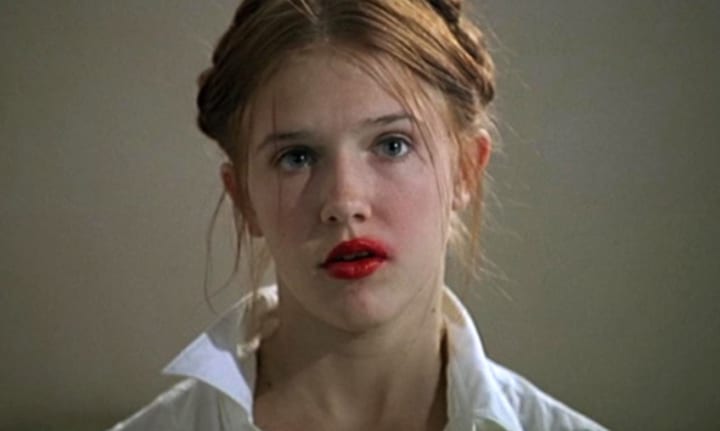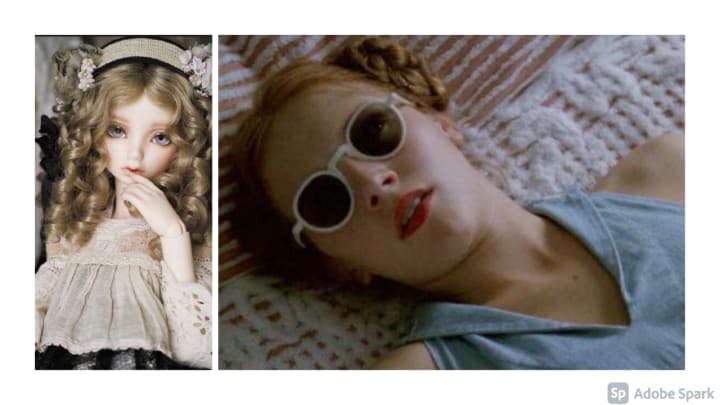‘Oh, My Poor Lola… - Lolita Revisited’
The tricky world of 'Lolita' by Vladimir Nabokov. Have the readers missed the real point of the book?

I have recently come across an article in Russia about the long-suffering book ‘Lolita’ (1955) by the Russian-American novelist, poet, and translator, Vladimir Nabokov (1899–1977). The long-suffering epithet assigned to the book is not mine though. It is Vladimir Nabokov himself who said so, as he was witnessing criticism of his book. The book was published in 1955 by Paris based Olympia Press, specialising in erotic and avant-gard literature. The fact that did very little good to the book, apart, of course, from making it popular.
Personally, I have read the book in two languages: in English and in Russian. Vladimir Nabokov himself called his book a very American story. Mostly, as I believe, because of the pattern that is depicted there. The pattern which Russian readers are not very familiar with but aware of nonetheless. The Russian article I have read about ‘Lolita’ scrutinizes and zooms in on the subject of eroticism of the story. Having read the article, I suddenly realised what Vladimir Nabokov meant by his book being a very American story. It clicked for me, and I have remembered how I myself reading the book for the first time was involuntarily placing myself in the position of Lolita Haze, finding it alluring and intriguing. Not quite the reaction perhaps that is expected from a girl or a young woman reading the book.
This recollection of mine has brought to mind movie stills from the movie ‘Lolita’ (1997) that are circulating on mini blogging platform Tumblr where they are reposted in millions by no more no less teen-age girls themselves. For them, the image of Lolita is a very attractive one. For exactly the same reasons it was attractive to me.
I expressed my observations and experience in the comment that I left after having read the article. It was met with rather harsh ‘welcome’ from other women, which did not surprise me.

For an American teen-age girl, as it was for myself, the image of Lolita represents being an adult, being taken seriously, and being sexually competitive with grown up women. Having a relationship with an older man or an older boy is quite a common fantasy for schoolgirls. This explains the popularity of Lolita’s image among female teens.
Vladimir Nabokov captured the pattern perfectly, but from a male point of view, not including the one of a teen-age girl, just hinting at it. My discovery was confirmed in the conversation with a female friend of mine the following day. She shared with me her being hooked on the Netflix series ‘Pretty Little Liars’ (2010) based on the series of novels by Sara Shepard. Since my friend raved about it, I have watched couple of episodes to see what it is about.

The theme that is presented in the series correlates with the one of Lolita image i.e. teen-age girls, their sexual relationships, including with older men, their craving for attention, and trying to be grown-up women, if only in the way they dress and look. Whilst Vladimir Nabokov’s image of a teen-age girl is romanticised and to some extent vulnerable, with the main character worrying that he is doing something wrong, the ‘Pretty Little Liars’ (2010) image of teen girls is plainly sexy, at times aggressive, presenting overly confident, tarty dressed and craving for the attention girls, not worrying over any moral dilemmas in regards to having sex with older men. Quite a difference in perspectives, I’d say.
In his book, Vladimir Nabokov, intended to show the suffering of a man, Humbert Humbert, who cannot move on from the point of death of his first love, Annabel Leigh. As a result, he has a feverish clinging to the past that transforms over years into romanticising girls of certain age, and in some seeing his deceased beloved. Now comes the very interesting bit. All the names of the characters in ‘Lolita’ book bear a meaning and significance.
Let’s start with the title of the book — ‘Lolita’. Lolita is a diminutive of Delores which means ‘sorrow’. Knowing the meaning of the title one can set one’s expectations right. But very few people do, as they rarely pay attention to the titles or any meanings to that matter.

The full name of the teen-age girl whom Humbert Humbert romanticises is Lolita Haze. Another very important clue, for the word ‘haze’ means ‘a state of mental confusion’ or as a verb ‘to obscure with haze’. Thus, the full name of the girl reads as follows: ‘sorrow that is caused by mental confusion’. What can be understood from this? Firstly, that Lolita herself is the haze and the source of sorrow. Secondly, that the one who deals with her i.e Humbert Humbert is hazed and does not see her clearly due to his own sorrow which he projects onto her.

The name of the main character and the narrator explains it further. Humbert Humbert means ‘a bright warrior’. Now, whom Humbert Humber fights with? Himself? His sorrow? Lolita?
Let’s go back to Humbert Humbert’s first love — Annabel Leigh - a teen girl he had fallen in love on the shores of Cote D'Azure. She is the one who is a real source of his sorrow. Her first name -'Annabel' - means ‘grace’ and ‘beauty. 'Anna' stands for 'grace', 'bel' or 'belle '- for 'beauty'. Her surname — 'Leigh' means ‘delicate’. So, the delicate beauty and grace who was Humbert Humbert's first and last love is the constant trigger of his suffering. He sees his beloved in similar teen age girls and seemingly finds in Lolita Haze. Why seemingly? Because she is not as graceful or beautiful or delicate. Humbert Humbert makes her look so by projecting the image of his memory of the girl he loved and still loves onto the girl who seems to be resembling Annabel Leigh.

What is really interesting is how the name Lolita Haze transforms by the end of the book into Dolly Schiller. The girl marries and adopts the name of her husband - a deaf mechanic. The diminutive of her first name is now Dolly. The word that sounds like a doll. Her new surname ‘Schiller’ denotes the metallic lustre. So, Lolita becomes a shining doll in the hands of her deaf husband. The deafness here is also meaningful, for the man cannot hear anything she says or anything that is said about her. Blissfully unaware, so to speak.
But wait, who is the guilty party then? Is it a wounded literature teacher, Humber Humbert, who romanticises the girl? Is it an abductor of Lolita — a producer of the pornographic movies, Clare Quilty, - the name of whom sounds very much like ‘clearly guilty’? Or is it the girl herself who represents a sexual temptation and has a strong inclination towards the pleasures of the bed? For, there is another connotation for the name Clare Quilty — ‘famously patched’. The ‘quilty’ comes from ‘quilt’ — a warm bed covering made of padding enclosed between layers of fabric, and ‘Clare’ means ‘famous’. Interestingly enough, although the name Clare Quilty is given to a man in the book, ‘Clare’ is originally a girl’s name. It seems that the ambiguity of the name is there to prompt the reader to ponder over the relationship between teen girls and men who promote pornography and associated with it behaviour, and as such representing an element of American society.

This dilemma brings us back to the Netflix series ‘Pretty Little Liars’ (2010), written by a woman and produced by a woman, aiming at revealing certain patterns in sexual and otherwise behaviour of American teen girls. The behaviour that is similar to the one of Lolita Haze and the heroines of the series, which is glamorised and publicised. Not in the least by the teen girls themselves. For, their attitude is based on their wish to be accepted as grown-ups. The way to growing up these girls see in sex and sexual relationships.
Examining the subject of love, in particular first love, and sex and their interchanging places that is raised by Vladimir Nabokov in his ‘Lolita’, one will be able to see that Humber Humbert fights with the loss of the first love, absence of beauty and grace in his life, and, of course, with himself too, trying not to succumb to temptation of projecting his pain and longing onto wanna-be adult. Lolita Haze’s sorrow, on the other hand, lies in her not distinguishing between true love and sexual relationships to which she is addicted. The addiction that had started before the appearance of Humbert Humbert, for Lolita had lost her virginity to an older boy prior to meeting the narrator.
The book being written from the first-person perspective — an unreliable narrator who is a literature teacher to add to the bargain — gives more food for thought. Is what Humbert Humbert describes in regards to his relationship with Lolita Haze real? Or is it all a fantasy of his? It might be the latter. For, his actions in the end of the book strongly suggest this. Him killing the producer of pornographic movies equals to killing sex bit that appeared in his fantasy and took over his 'Haze'. This indicates that he has never had any sexual relationship with Lolita Haze. But then, it means that the reader has been tricked and led to believe a fantasy of the man who wanted to stay close to the girl whom he believed reminded him of his first love. I rather think it is indeed the case.
About the Creator
Seraphima Bogomolova
Creative entrepreneur/Cinematographic visionary
Screenplays:
‘A Tricky Game', 'Puzzled, and 'Головоломка'
Books:
Головоломка, Puzzled, Задача с неизвестными, Загадка Восточного Экспресса.
Non-fiction books:






Comments
There are no comments for this story
Be the first to respond and start the conversation.